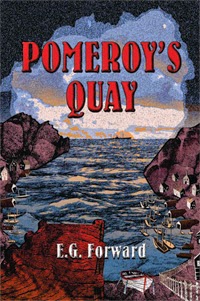After his father’s untimely death, Richard has suddenly been thrust into the role of breadwinner for his family. He joins a rough crew bound for the cod fishery off of the wild, dangerous land of Labrador.
Part coming-of-age period piece, part spy thriller, what follows is an exploration of Newfoundland’s culture and history, including the importance of the cod fishery and seal hunt, the superficial prejudices between Catholics and Protestants, the amusing Christmas tradition of mummering, the history of the hardy Newfoundland pony, and the tactical importance of Newfoundland and Labrador in the days leading up to WWI.
In its search for historical realism, the novel doesn’t shy away from showing the often gruesome realities of fishing, where even the slightest mishap could lead to dismemberment or death. Nor does the author censor the vulgarities of the fishermen: they curse, they discuss women, and their jokes are often lewd or macabre. Perhaps the best part is the author’s rendering of the unique Newfoundland accents, enough to give the flavor and cadence of the often darkly humorous dialogue without distracting from the narrative.
While the novel paints a vivid picture of what life was like for the townsfolk and fisherman, at times it presents too much of a general picture by skipping from one narrator to another; the book might have been better served to just stick with young Richard’s perspective. It also loses steam in the chapters told from the perspective of the German U-boat officers doing surveillance, but they certainly lend an air of menace and foreboding to the story, reminding readers of the upcoming war.
The author, E. G. Forward, serves as a commander in the Royal Canadian Navy and did an author reading from this novel at the Alderney Gate Public Library in April 2014.

